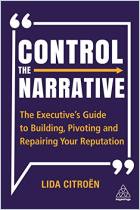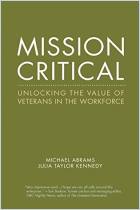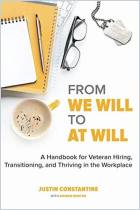Зарегистрируйтесь на getAbstract, чтобы получить доступ к этому краткому изложению.

Зарегистрируйтесь на getAbstract, чтобы получить доступ к этому краткому изложению.
Lida Citroën
How to Take Control of Your Job Search & Career After Military Duty
Talks at Google, 2020
Что внутри?
Learn valuable insights into the military-to-civilian transition from a personal branding expert.
Recommendation
For the 200,000 men and women who leave military service every year, the transition to civilian life offers vast opportunities and a multitude of challenges. To help service members prepare for and move smoothly through the transition out of uniform and into the workforce, Lida Citroën offers helpful insights in an hour-long conversation for Talks at Google. Citroën is a branding and reputation management expert with 20 years’ experience, specializing in helping veterans navigate the military-to-civilian transition. Tricia McGrath Hess, lead recruiter for Google’s VetNet NYC, moderates. The video opens with an informative introduction by Charlene Clee, program manager for staffing of Google’s Veteran Hiring Initiatives. Clee describes Google’s approach to hiring veterans and offers online resources for the veteran community.
Summary
About the Speaker
Lida Citroën is a branding and reputation management expert specializing in helping veterans navigate the military-to-civilian transition. She is the author of Success After Service: How to Take Control of Your Job Search after Military Duty.























Comment on this summary